The Abolitionist Roots of Anti-War Encampments
From Minneapolis to Manhattan, the encampments now spreading across college campuses are built on the same principles as abolitionist spaces like George Floyd Square.
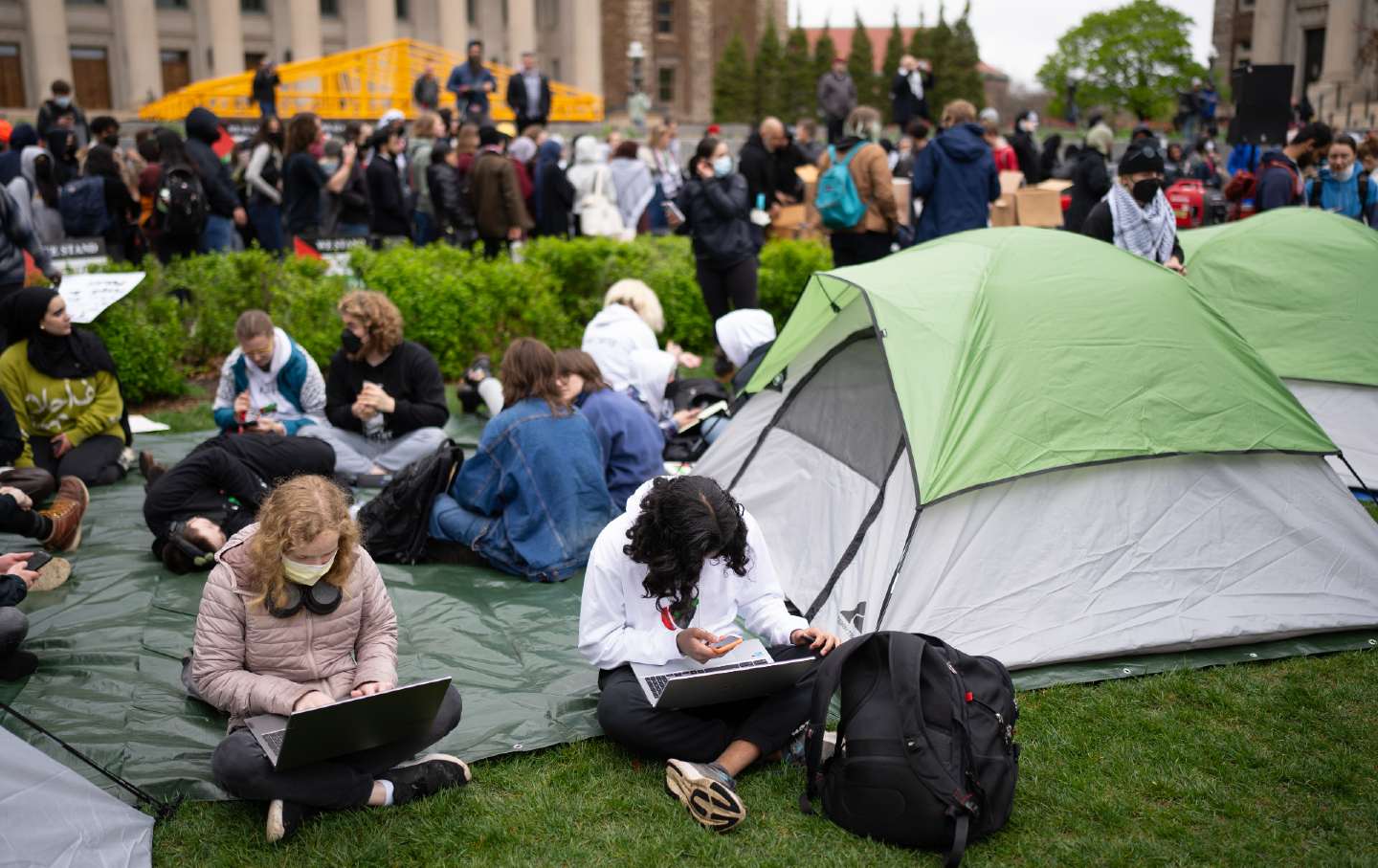
Minneapolis—The police came first. Then the rain. Early last week, an on-campus encampment set up by students at the University of Minnesota was dismantled by law enforcement, and nine people were arrested. Thursday night, students again pitched tents. Rows of police arrived beneath the cover of darkness and told them to disperse. Protesters linked arms and responded with the same chants that filled the streets following the police murder of George Floyd. “One, two, three, four, five, six, seven, eight, nine, 10, 11, fuck 12!” (“Twelve” refers to police generally in radical circles.) Then, law enforcement left, arresting no one. Protesters erupted in cheers.
Since April 17, anti-war encampments have spread from Columbia University to hundreds of campuses across the country. In the 200 days since Israel began its latest assault on Gaza, nearly 35,000 people have been killed, including more than 13,000 children. All universities in Gaza have been destroyed. Multiple mass graves have been discovered, including one at Al-Shifa Hospital that contained over 400 bodies. Netanyahu has vowed to invade Rafah next—a Gazan city where over 1 million Palestinians have sought refuge. Still, last week, Biden signed another bill to send Israel an additional $17 billion in weapons.
In occupying their campuses, students are protesting the war, expressing their solidarity with Palestine, and calling on their universities to divest from Israel. The protests find historical precedent in anti-war protests of the 1960s and ’70s, including protests at the University of Minnesota in 1972 that ended with the National Guard patrolling campus. But they also draw inspiration from numerous other attempts to occupy and reclaim space in response to ongoing state violence—in Minneapolis and beyond.
The current anti-war encampments at the University of Minnesota, for instance, are just a short drive from George Floyd Square (GFS), the longest-running political occupation in the state. Since 2020, organizers have held the space, and plan to do so unless 24 demands are met by the city. In the meantime, they are actively building the type of world they’d like to see. In occupying their campuses, students are doing the same.
Though a cease-fire and divestment from Israel are the primary goals of current anti-war encampments, they are not the only goals. Building and maintaining occupied space is a staple of radical movements. Anti-war encampments across the country have set up liberation libraries, free healthcare clinics, and free food networks—all of which can be found at GFS. Some GFS occupiers were also part of the Minnehaha Free State, which emerged in 1998 to prevent the construction of a new highway in Minneapolis—much like the attempt at Standing Rock to prevent the construction of the Dakota Access Pipeline in 2016.
The Minnehaha Free State lasted just over a year, while Standing Rock lasted just short of one. Both ended with police violently clearing the areas. Similarly, members of the current anti-war movement have been met by an outsize police response: tanks at Columbia, snipers at Ohio State, mounted units at the University of Texas at Austin. Thus far, US police have arrested more than 1,000 protesters. But the protests have spread internationally as well, with police clearing encampments in Berlin and Paris.
Emory University in Atlanta is one of several campuses where the police response to encampments has been particularly aggressive: On Friday, tear gas and rubber bullets were used, 28 people were arrested, and one professor’s head was slammed into concrete. It’s also where the link between movements for police abolition and a Free Palestine are front-and-center, as the Stop Cop City movement is standing alongside anti-war protesters at Emory.
A crossover of the Minnehaha Free State and George Floyd Square, the Stop Cop City movement is working to prevent the construction of a $90 million training facility, where police are to practice quelling protests. Building the facility will also destroy a local forest. Last January, police killed 26-year-old Manuel Esteban Paez Terán (aka Tortuguita), a protester in the forest. They shot Terán 57 times.
“Emory University’s administration is rife with political and financial ties to the Israeli state and the Atlanta Public Safety Training Center, more commonly known as ‘Cop City,’ where the Atlanta Police Department are expected to exchange counterinsurgency and urban warfare tactics with Israeli police as part of the Georgia International Law Enforcement Exchange,” Emory students wrote in a field guide to their occupation.
Police abolitionists have long linked their struggles to the struggle to Free Palestine. See, for instance, Angela Davis’s book Freedom Is a Constant Struggle: Ferguson, Palestine, and the Foundations of a Movement.
“Some might say that the issues driving the George Floyd mobilizations and the current protests against the war on Gaza are different. But are they?” Davis wrote recently in Hammer and Hope: “Whether or not the Minnesota police ever directly learned combat moves from the IDF, the increased militarization of policing here is directly related to global capitalism, including the economic and military ties between Israel and the U.S.”
But anti-war encampments are also abolitionist in practice: They offer alternative ways of imagining justice, liberation, and freedom. Abolition movements operate under the assumption that current institutions like police and military (working locally and internationally) are systemically violent—especially towards people of color—making them unable to produce peace, justice, or equitable outcomes over time, even with legal reforms.
Abolitionists instead work towards what they call “transformative justice” which, per Mariame Kaba, is characterized by collective solidarity and liberation, radical imagination, and the creation of spaces where everyone can live free from violence, harm, and oppression.
“From Tahrir Square to Zuccotti Park to the quads of each of these universities,” Emory students wrote, “encampments such as ours provide a liminal space, an experiment in collective life between the pressures of racial capitalism and the world we are building.”
Popular
“swipe left below to view more authors”Swipe →On Monday, the University of Minnesota’s last day of classes, rain was still falling—sideways this time. The sky was an ominous gray. A week after the first encampment was erected, students again began to pitch tents. The air had a chill to it, leftover from a winter that wasn’t. Just across campus, cherry blossoms were in bloom.
Ahead of an afternoon rally, the university shut down 12 buildings on campus, including the student union. The wind blew as student chants outside the locked building grew louder: “From the river to the sea, Palestine will be free!”
Come nightfall, the police issued a dispersal order, then another. But in the morning, the encampment was still standing. By Tuesday night, the rain had picked up. But students stayed. At Columbia, the epicenter of the movement, hundreds of police in riot gear stormed an occupied building during a comparable downpour and dismantled the accompanying encampment. Protesters were packed onto buses in the darkness, their hands zip-tied behind their backs. A banner hanging from the building paid homage to Tortuguita. Above Terán’s face, it read: “LA LUCHA SIGUE” (“the struggle continues”).
Online, a hashtag was circulating: #ESCALATE4GAZA.
Independent journalism relies on your support
With a hostile incoming administration, a massive infrastructure of courts and judges waiting to turn “freedom of speech” into a nostalgic memory, and legacy newsrooms rapidly abandoning their responsibility to produce accurate, fact-based reporting, independent media has its work cut out for itself.
At The Nation, we’re steeling ourselves for an uphill battle as we fight to uphold truth, transparency, and intellectual freedom—and we can’t do it alone.
This month, every gift The Nation receives through December 31 will be doubled, up to $75,000. If we hit the full match, we start 2025 with $150,000 in the bank to fund political commentary and analysis, deep-diving reporting, incisive media criticism, and the team that makes it all possible.
As other news organizations muffle their dissent or soften their approach, The Nation remains dedicated to speaking truth to power, engaging in patriotic dissent, and empowering our readers to fight for justice and equality. As an independent publication, we’re not beholden to stakeholders, corporate investors, or government influence. Our allegiance is to facts and transparency, to honoring our abolitionist roots, to the principles of justice and equality—and to you, our readers.
In the weeks and months ahead, the work of free and independent journalists will matter more than ever before. People will need access to accurate reporting, critical analysis, and deepened understanding of the issues they care about, from climate change and immigration to reproductive justice and political authoritarianism.
By standing with The Nation now, you’re investing not just in independent journalism grounded in truth, but also in the possibilities that truth will create.
The possibility of a galvanized public. Of a more just society. Of meaningful change, and a more radical, liberated tomorrow.
In solidarity and in action,
The Editors, The Nation
More from The Nation
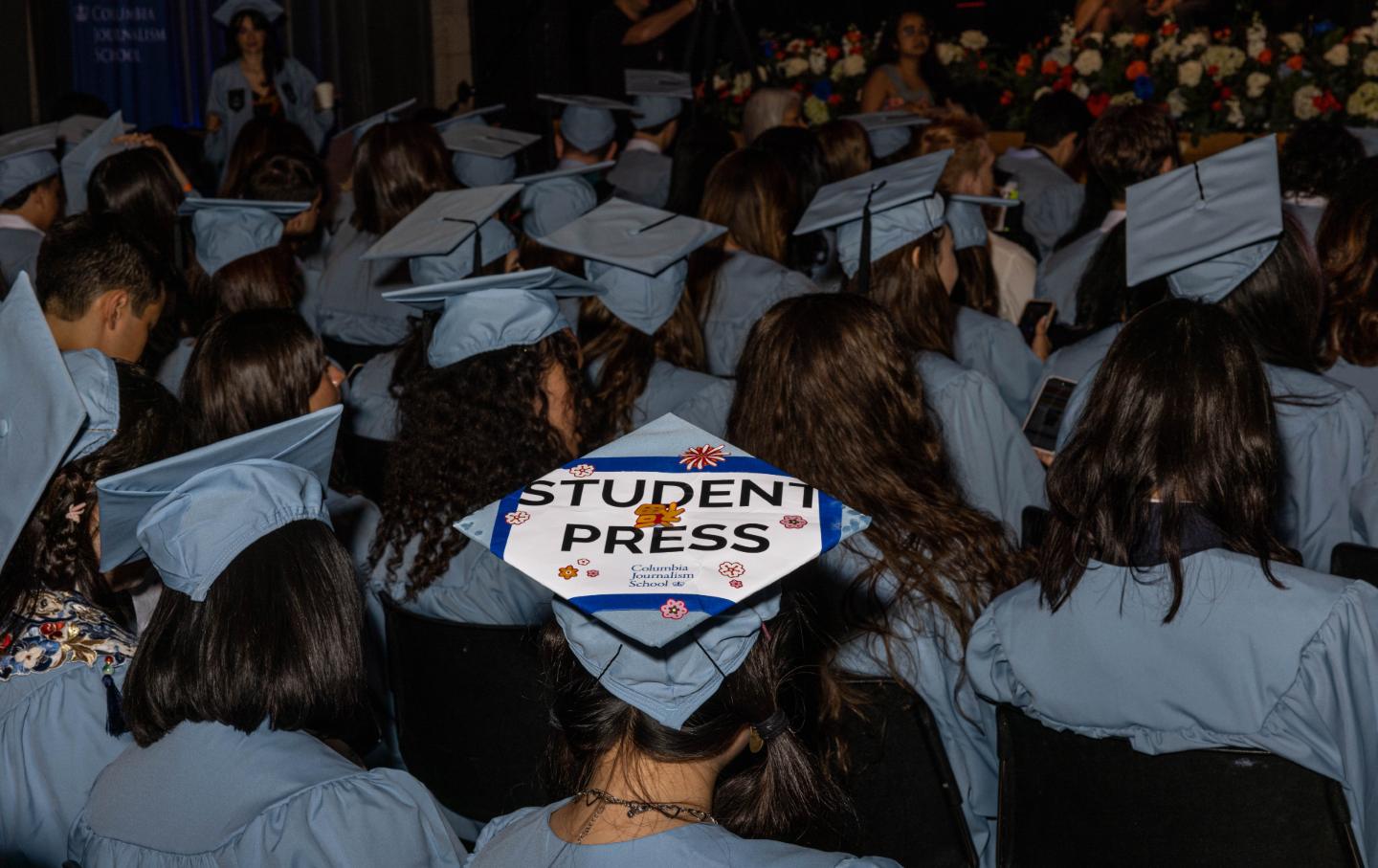
A Stunning Year for Student Journalism A Stunning Year for Student Journalism
Here are 20 of the best StudentNation articles from 2024 to highlight the extraordinary reporting of the next generation.
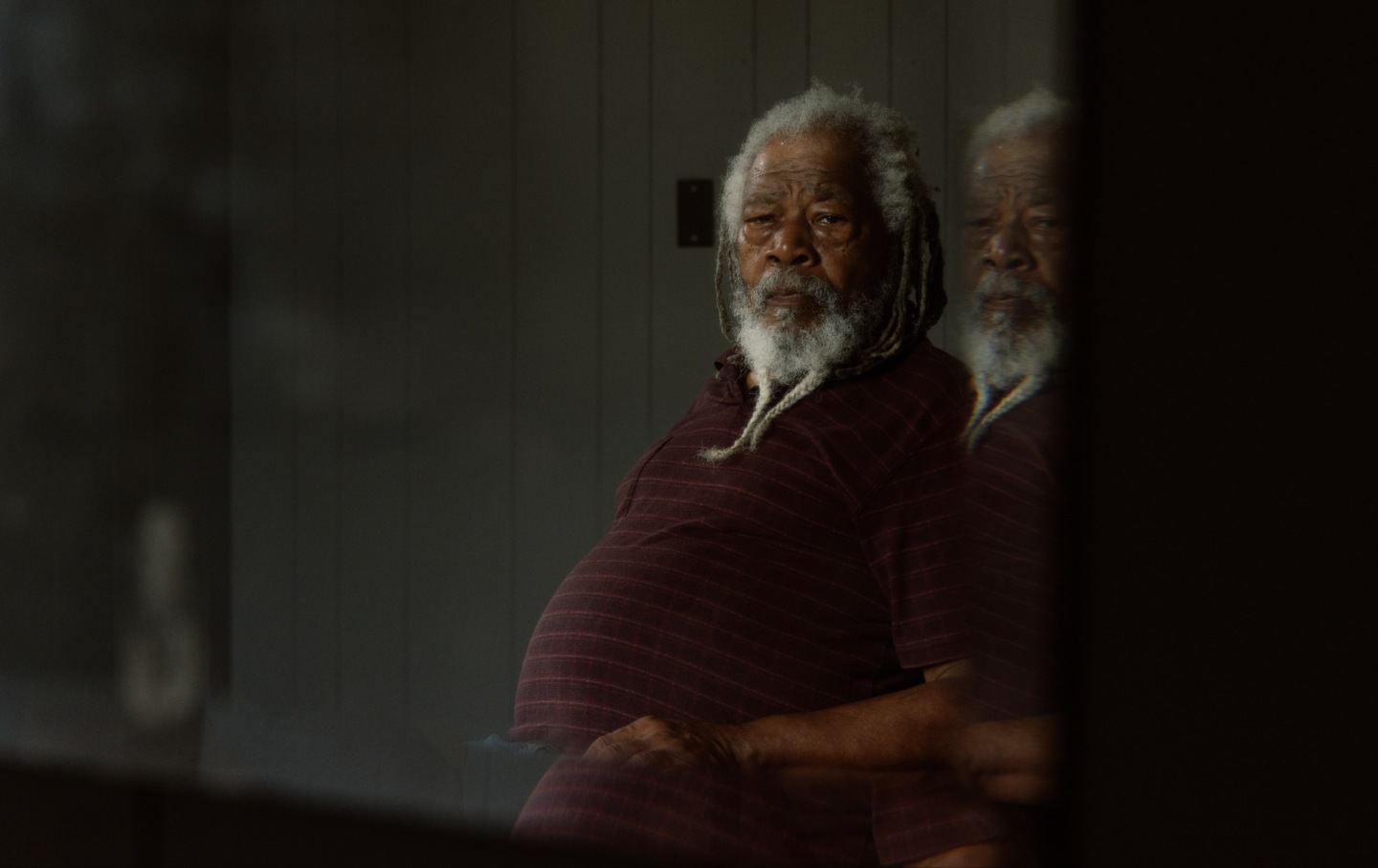
When the Feds Are Still Watching When the Feds Are Still Watching
Former Black Panthers fear the FBI is still keeping tabs on them decades after COINTELPRO. In at least one case, they were right.
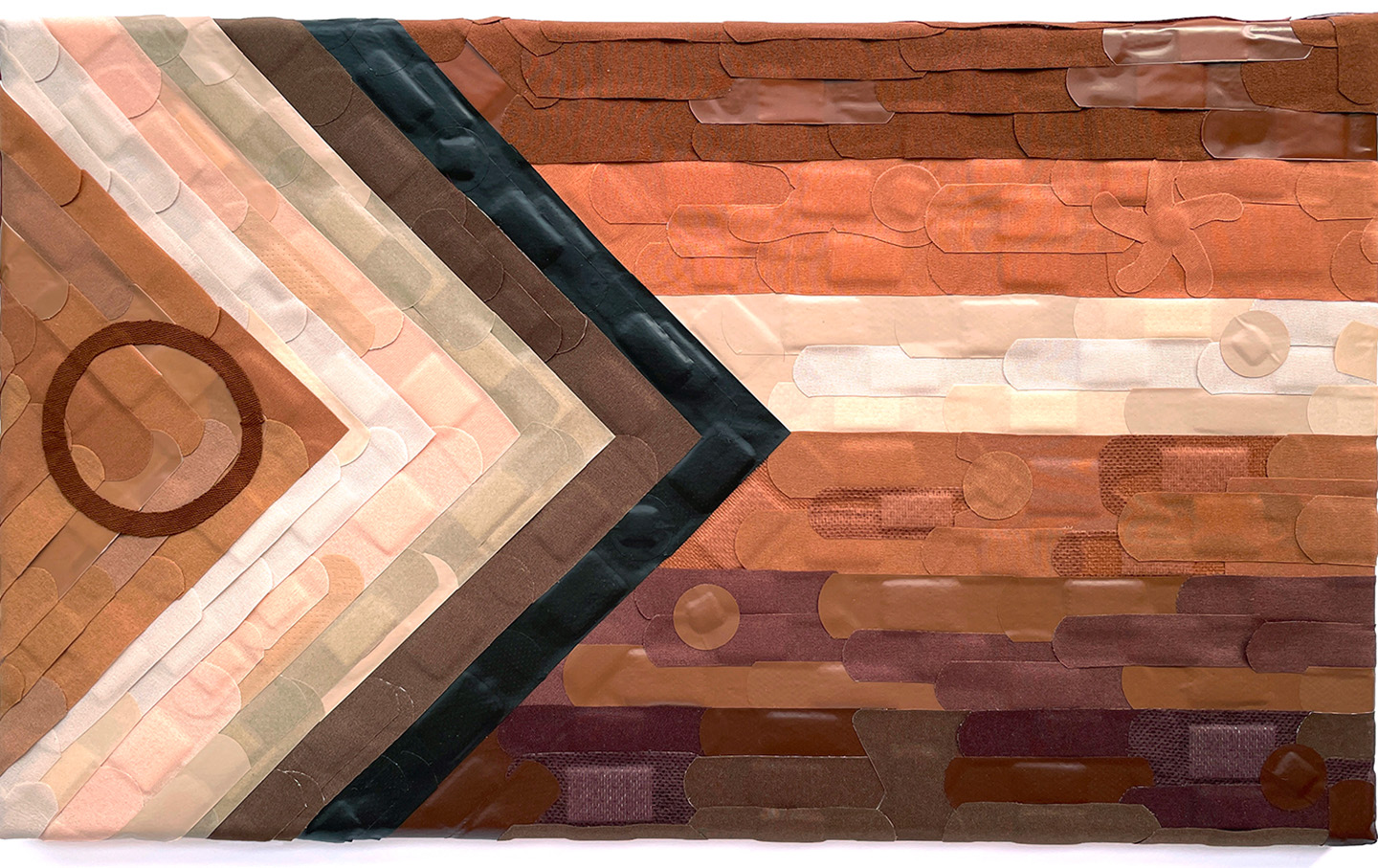
Healing LGBTQIA+ Healing LGBTQIA+
200+ skin-tone bandages: a whole community to heal.
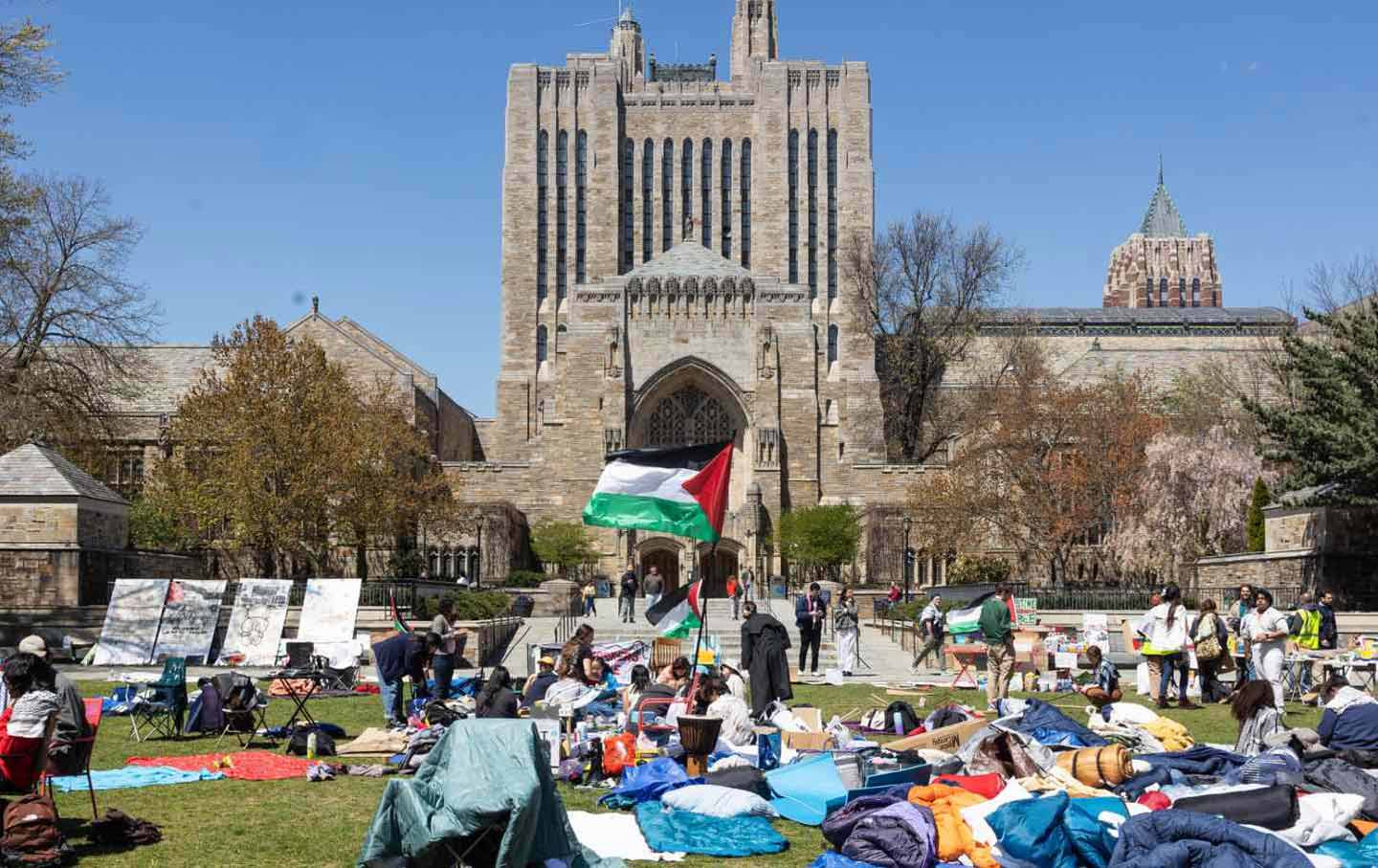
Yale Students Voted to Divest, but What’s Next is Unclear Yale Students Voted to Divest, but What’s Next is Unclear
The referendum calls on the school to divest its $41 billion endowment from military weapons manufacturing firms, yet the power to do so is in the hands of the board of trustees.
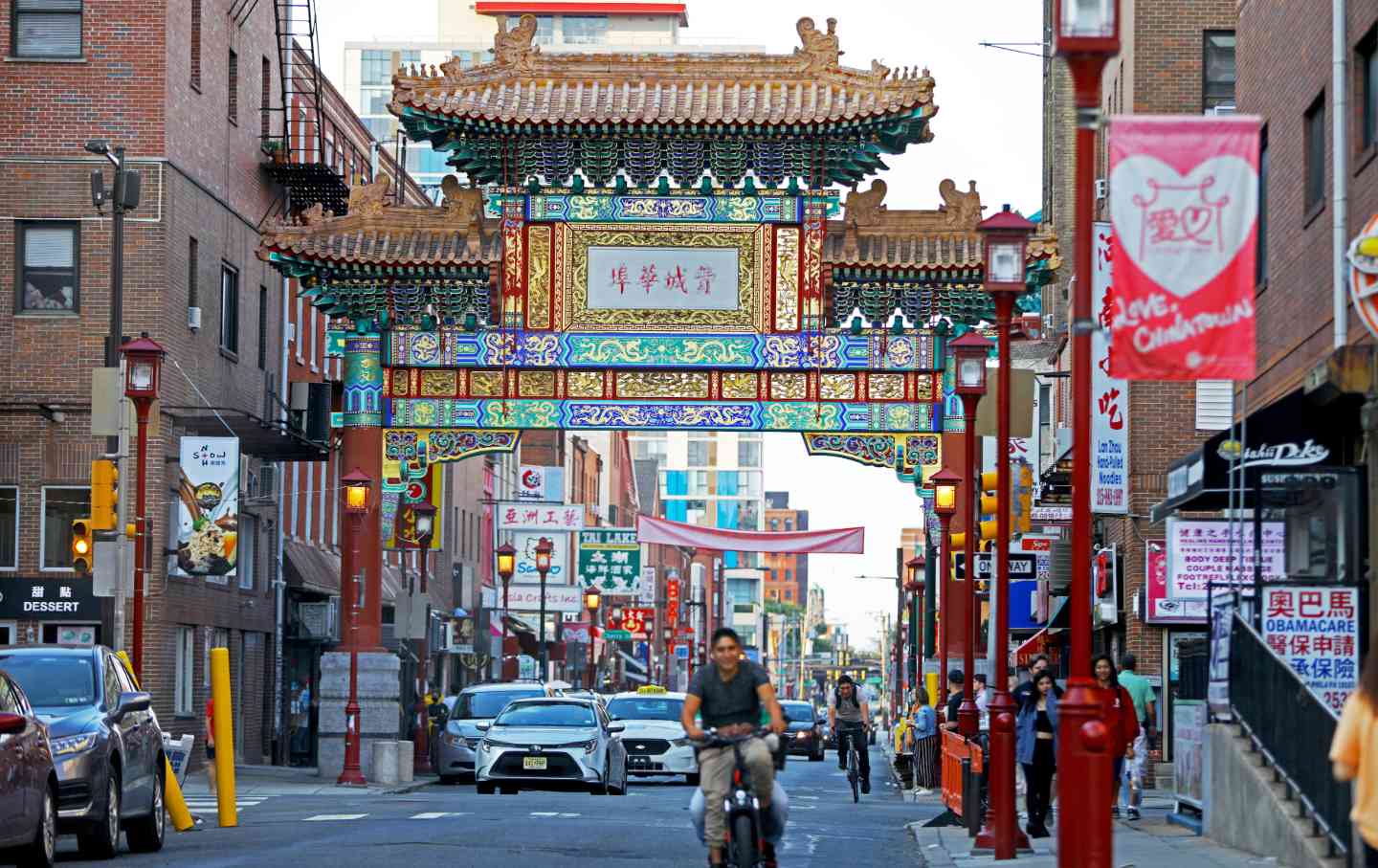
The “Save Chinatown” Coalition Goes on the Defensive in Philadelphia The “Save Chinatown” Coalition Goes on the Defensive in Philadelphia
The construction of a new basketball arena threatens to fill the neighborhood with more traffic and raise rents.

Human Rights for Everyone Human Rights for Everyone
December 10 is Human Rights Day, commemorating the anniversary of the Universal Declaration of Human Rights (UDHR), one of the world's most groundbreaking global pledges.


